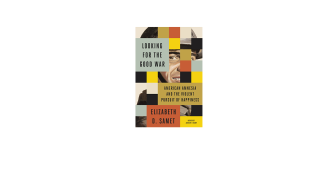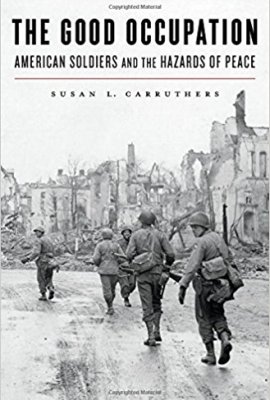Susan Carruthers
Former Fellow
Professional Affiliation
University of Warwick
Expert Bio
For years, I've been fascinated with how individuals and communities make sense of conflict. War, it's often said, is the "worst thing we do." Yet it's hard to imagine a field of human endeavor subject to more insistent, and persistent, valorization. Art and literature may entreat us to contemplate the sorrow and pity of war, but just as often popular culture, practices of remembrance, and sites of commemoration attach connotations of heroism, nobility, and redemption to the business of killing and being killed. In the digital age, invitations to imagine, remember, or recreate combat surround us. But we often remain largely ignorant about particular present-day wars as they unfold.These paradoxes intrigue me—war's concomitant ubiquity and invisibility in contemporary North American and European societies. Over the course of my career, I've studied how wars are popularly understood and recollected in a variety of historical and geographic settings. Over the past decade, however, my interests have centered primarily on US foreign relations. And as the focus of my research shifted westwards, so too has my life. After nine years in the Department of International Politics at the University of Wales, Aberystwyth, I moved to Rutgers University, Newark in 2002 as a professor of "The United States and the World." Arriving in the aftermath of 9/11 and teaching at the most ethnically diverse campus in the country has greatly enriched my appreciation of the variety of ways in which Americans conceive their country's wars, past and present. Having completed a book on early cold war culture and politics, Cold War Captives: Imprisonment, Escape, and Brainwashing (University of California Press, 2009), the inspiration for my new project derived from contemporary developments in the "global war on terror." In early 2003, I was struck by the frequency with which Bush administration officials referenced the US occupations of postwar Germany and Japan in making the case for invading Iraq. If the Germans and Japanese could be cured of their insatiable appetite for world conquest, then it would surely be simple enough to rid Iraq of Ba'athism, installing a democratic regime in place of Saddam's dictatorship. So the logic went. With this affirmative invocation of history, doubters were assured that occupation was an ennobling enterprise for occupiers and occupied alike.My project explores how this paradigm—the "good occupation"—took shape in the postwar United States. Over the past two decades, historians and cultural critics have elucidated how the "worst war ever," as Paul Fussell termed World War II, became the "good war." But its sequel, the "good occupation," has remained transparent to critical investigation. This lacuna is striking. Although some historians questioned the fit between Iraq in 2003 and Germany or Japan in 1945, the conceit of benign occupation itself went unchallenged. Yet accounts of these ventures in military government produced as they occurred typically accentuated its sordid and squalid dimensions, from black marketeering to "fraternization." What work was required, then, to reorient public attitudes? When and how did military occupation become part of the United States' "usable past," and to what effect?
Education
B.A. Hons (1989), International History and Politics, University of Leeds; Ph.D. (1994), Communications, University of Leeds
Experience
- Professor of History, Rutgers University, Newark, 2010- present
- Fellow, Charles Warren Center for Studies in American History, 2006-2007
- Associate Professor of History, Rutgers University, Newark, 2002-2010
- Senior Lecturer in International History, University of Wales, Aberystwyth, 1999-2002
- Lecturer in International History, University of Wales, Aberystwyth, 1993-1999
Expertise
History of U.S. Foreign Relations; Cold War cultural history; the media and war; counterinsurgency
Wilson Center Project
"The Good Occupation: Military Government in the American Imagination"
Project Summary
Since 1945, Americans have come to regard their postwar occupations of defeated enemy states as remarkable success stories. In the years following WWII, however, attitudes were much more conflicted. This project explores how the project of occupation has been ennobled over the past 60 years.
Major Publications
- Cold War Captives: Imprisonment, Escape, and Brainwashing. (University of California Press, 2009), 346pp
- The Media at War: Communication and Conflict in the Twentieth Century. (Palgrave/Macmillan, 2000; Chinese language edition, Xinhua Publishing House, Beijing, 2002), 321pp; 2nd edition forthcoming, January 2011
- Winning Hearts and Minds: British Governments, the Media and Colonial Counter-Insurgency 1944-60. (Leicester University Press, 1995), 307pp
Insight & Analysis by Susan Carruthers
- Past event
Looking for the Good War

- Past event
- History
The Good Occupation: American Soldiers and the Hazards of Peace

- Book
- Conflict Resolution and Peacebuilding
The Good Occupation: American Soldiers and the Hazards of Peace

- Past event
- History
The 'Good Occupation': Military Government in the American Imagination

